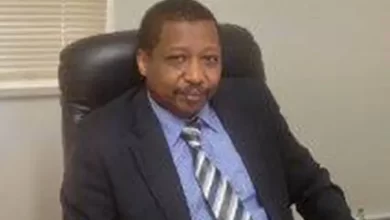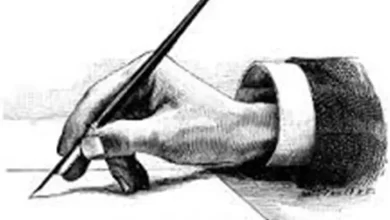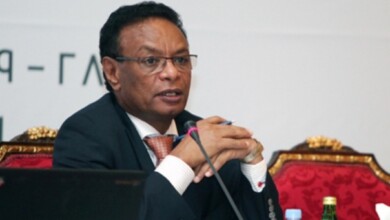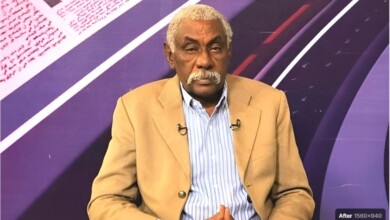Our salvation passes through El-Fasher
Dr. Al Waleed Adam Madibo writes...Our salvation passes through El Fasher
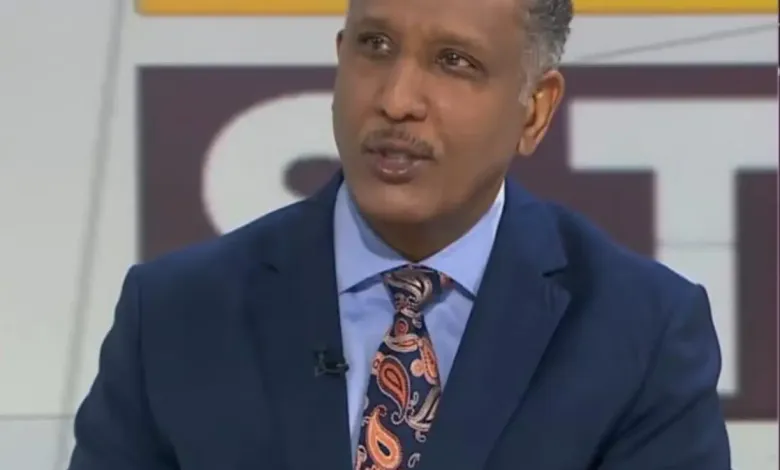
More than enough Sudanese blood has been spilled already in Darfur. The region has endured a lot in order to rid itself of the tyrannical and colonial regimes in Sudan, starting with the campaign of Al-Zubayr Pasha, that aimed to bring Darfur under the Turkish-Egyptian rule, through the Mahdia, which bore the burden of getting rid of the Turkish rule and made Darfur bear the consequences of forced migration to Omdurman, ending with the death of Sultan Ali Dinar, who wasn’t -by far- the last to resist the British colonial attack, but was surely the catalyst and instigator of the act of resistance to the racist apartheid regime that was consciously and unconsciously constructed by the national ruling elites.
Only scientific research will later reveal whether the central elites have failed to or deliberately not included Darfur in the cycle of the rentier economy left by the colonialists. However, it is clear that impoverishment was a direct cause for maintaining that rich region as a major supplier of agricultural crops and livestock and preserving it as a strategic reserve for cheap labor and battle-hardened arms.
There are several factors that contributed to the forever worsening situation in Darfur, making it a hotbed of conflict, where it could have served as the California of Africa in terms of human and material resources.
The first of these factors is the geo-strategic and political factor that made it an area where the French influence and British influence intersect, between the Libyan expansionist ambition during the Gaddafi era and the Islamist ambition during the Bashir era, in addition to the more recent intersection between the American ambition that works through its agents in the region and the Russian-Chinese ambition.
The second of these factors is the geographical and environmental factor that warned of the inevitability of desertification as well as the possibility of displacement of some of the tribes inhabiting northern Darfur, southward and eastward in the direction of Nyala, Al-Li’ayt, Jar Al-Nabi, and Al-Daein.
The third and most dangerous of these factors is the military security factor that made the northern elites, the former ousted regime in particular, deal with Darfur as a settlement, especially following the war in the south. Where it must be preserved by force and not as a border region and a Sudanese directorate that must be protected from the surrounding situation, to utilize its legacies in rationalizing governance and employing it capabilities.
I was once a young boy entrusted with serving the guests when the leaders of Darfur were meeting at my father’s house during the crisis in the region in 1980 to reflect on the consequences of that unique event that resulted in unparalleled unity and determination that is rarely ever found.
The leaders were at a level of morality, maturity and professionalism that led them meet in order to discuss the interests of their societies as well as the possibility of preserving the political and societal cohesion that makes Darfur an asset to national unity, where its values and heritage are a rather significant asset for the future.
That unwavering national stance and dazzling national unity did not please the dictator Nimeiri, therefore he decided to divide the people of Darfur, and from that point onwards he issued instructions to the Security Service, Mr. Kamal Hassan Ahmed in particular, on the necessity of dividing those “westerners” who dared to challenge him regarding the unity of the region, the capital of which should be El-Fasher, and its governor one of the region’s distinguished sons, the late Ahmed Ibrahim Dreij.
Hence the heavy reliance on the “Arab and non-Arab” point of reference adopted by some of Darfur’s sons, who represented what the former ousted regime was looking for, so they employed the divide-and-conquer strategy and motivated them with money and positions of power to annihilate their relatives and disavow the covenants of their fathers and grandfathers: “Those are the party of Satan. Unquestionably, the party of Satan – they will be the losers.”
Darfur sought to achieve its civilian goals without resorting to the use of weapons except when that was imposed on it. It still favors the democratic civil option and accepts it as a means of resolving political conflicts, even if they are difficult to resolve and don’t seem to meet the aspirations of the younger generations.
Darfur shined brilliantly in the sit-in square and deserved its share of courageous presence -without which the revolution wouldn’t have achieved its critical mass- gaining its value as a result of its cumulative action in sacrificing the worthy and precious. Professor Hamid Ali Mohammed Nour was the Civil Society representative in Sudan Call on behalf of “Darfur Civil Society Forum,” but he was excluded due to a need in Jacob’s soul at the penultimate moment to form the Forces of Freedom and Change. The margin has never spared any effort to form its civilian bodies, but time and time again, it is confronted with a conspiracy from democracy pretenders or mobs of military regimes.
Even the economic formations did not escape the arrogance of the northern urban elites, who saw -and still very much see- marginal associations as a threat to their political influence and thus an infringement on their investment and commercial “entitlements.” The Export Development Bank can be viewed as a model for the targeting of western Sudanese institutions, referencing the west path or the West Savannah Project.
Sudan significantly suffers from “the regressions and delusions of the central mindset.” One of the educated women of Khartoum told me that she regretted helping a poor neighbor from the marginalized areas, because the latter had shown the thieves to her safes.
Why are they at our mercy in the first place? Would it not have been better for the State to provide them with their basic needs so that they would not resort to such shameful acts? Instead of the war helping the middle-bourgeois group to open their eyes and hearts and understand the reasons for social injustice and its consequences, they began to promote themselves as victims of a conspiracy that targeted their honor and their money.
If there is a conspiracy to be uncovered, it is from the ousted former regime’s Army, that targeted the middle class, which is considered the pillar of renaissance in all countries, twice: once when they battled them for their livelihood, hence the reason they resorted to immigration or expatriation. And once again when they proved unable to protect them in their own home and preferred to seek refuge in the military garrisons. Therefore, it is necessary to discuss the institutional and structural reasons for these heinous crimes committed against all Sudanese citizens, instead of simply condemning the behavior.
The ousted former regime didn’t stop at manipulating the interests of farmers and attempting to undermine their economic independence by importing oils from Malaysia at a time when the bean crop was flowing in and the poor were attempting to achieve a profit sufficient to protect them from the evil of the oppressors. But moreover, the regime sent warplanes to attack people in their villages, so they took refuge in Khartoum to live in unjust and oppressive conditions.
Al-Kizan “the corrupting Islamists of Sudan” didn’t exclude anyone from their arbitrary imposed taxes to be paid daily in order to avoid confiscation of goods or even being placed in prison, with or without a pretext. A person’s name and character are enough to convict them in a country that has suffered from racism for centuries and doesn’t wish to be liberated from the myth of racial purity, but is rather fearful and accusatory towards those who incite it to renegade the shackles of racism.
At the same time when the people of the Nile community were talking about the “War of Dignity,” everyone was taken by surprise on Thursday morning, the 14th of March 2024, at exactly eight-thirty in the morning, by an unexpected bombing by the Sudanese Air Force “Antonov Aircraft” on the village of “Al-Hadra” in the Dalami District of the Nuba Mountains, where a number of explosive barrels were launched, leading to the death of (11) students and (2) teachers.
The crisis of today has become a significantly complex one, from which the political-military side has emerged, and even though the social-tribal side hasn’t been completely overshadowed, it doesn’t possess similar influence today as it is affected by the direct actions of militia leaders.
Those people must ponder carefully the dangers of a military confrontation, which would not only destroy the accumulations of voluntary action, but would also cause pain and bring back memories that were overcome by the will of collective and civilizational action, which deliberately went beyond tribalism as a political mechanism and did not abolish the tribe as a social unit.
For example, Mr. Abdullah Adam Khater says that the Rezeigat tribe was the “maker or breaker” in every stop we went through in the previous paragraphs, and therefore it is the duty of its leadership at this critical historical moment to be inspired by the values of the forefathers and to realize the strategic danger, which could befall the region if it suffers a second or third setback.
In conclusion, the strength of Darfur lies in its unity in itself and unity in adhering to the values of truth and virtue without violating the rights of others. Sudan will not recover until Darfur recovers from the crisis of politicization of identity, the role played by the central elites, and distancing itself as much as possible from the militarization of political life, a crime in which the Darfur elites contributed “Militarization of Politics & Politicization of Identity.” Until recently, Darfur was never the culprit, but rather a victim.
We must confront the center with the facts, as courtesy is no longer useful, and the crimes that Darfur suffered were due to the influence of some ethnicities and their control of the lion’s share in the security committees in Darfur during the genocide. The central elites are not in any moral position that qualifies them to play the role of preacher, as they are immersed in sin up to their ears.
The center may represent a refuge for those fleeing their identities and seeking validation from others “the anthropological meaning of the term Flanqai.” As for patriots, they can think about the values of the forefathers and the symbolism of El-Fasher “Abu Zakaria,” as well as the passionate longings it arouses in relation to the unity of the people of Darfur and their glorious stance in the face of the tyrant that evening in 1980. Shall we consider?

